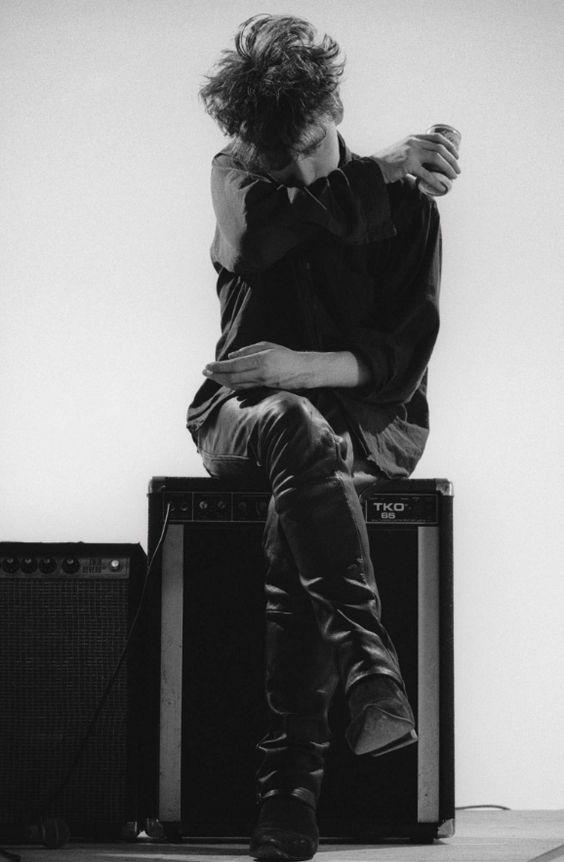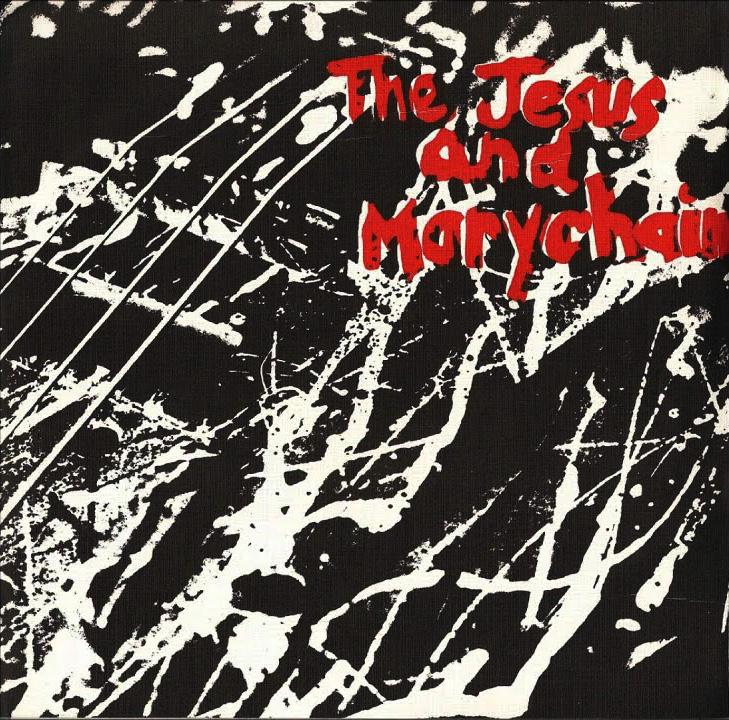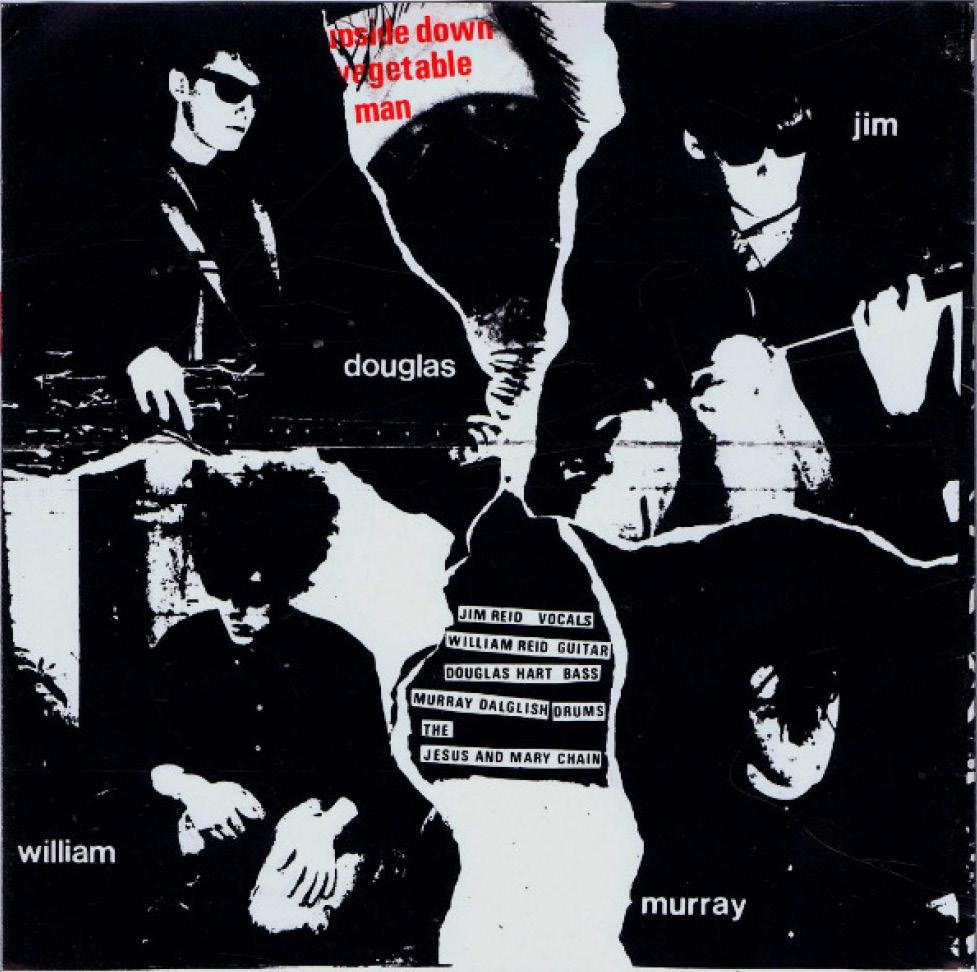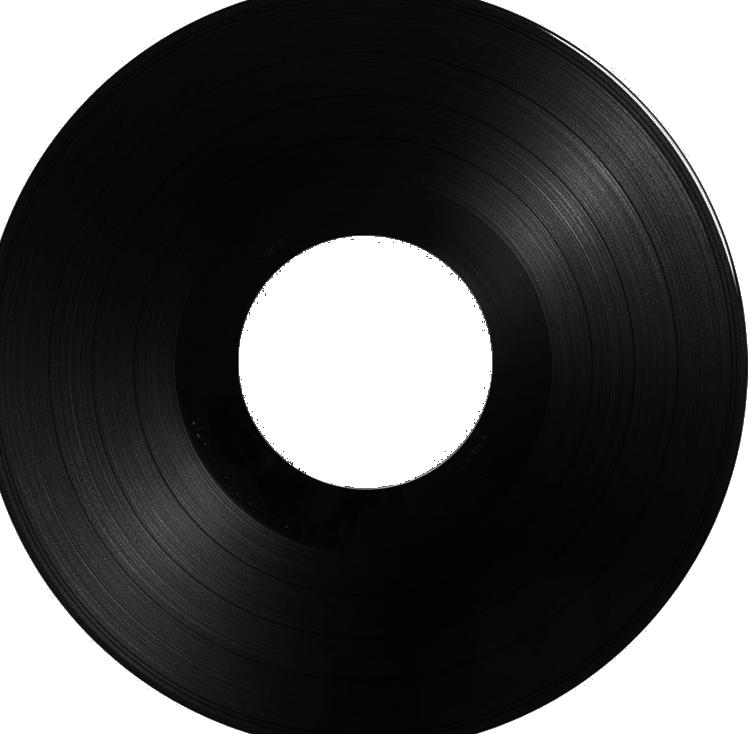
8 minute read
CREATION RECORDS
The label too understated to be commercial, too art to go pop, too pop to go art
No independent record label enjoyed the kind of success that Creation Records did throughout the 1980s and 1990s. Hold its discography up to any other label over that period, and it would be tough to argue that anyone did it better). Following in the footsteps of successful indies like Rough Trade and Postcard, Creation was founded by a red-haired loud mouth named Alan McGee, along with his partners Dick Green and Joe Foster, as a home for music that didn't fit in the mainstream. And yet thanks to a 1984 single called "Upside Down" by a young Scottish band named the Jesus & Mary Chain, McGee found his label flirting with commercial success, which he would attain in full one decade later.
Advertisement
McGee formed Creation Records following the culmination of various projects including fanzine Communication Blur, his own rock outfit The Laughing Apple (with future Primal Scream guitarist and long-time friend Andrew Innes) and his running of the venue The Communication Club. Initially, McGee wished to provide an outlet for like minded musicians and an opportunity for young bands to see their work on vinyl; primarily the label was in opposition to the “manufactured” synth pop of the era that bore little resemblance to the work of his favourite acts including Public Image Ltd and the Sex Pistols. McGee started the label by putting out the “’73 in ‘83” single by The Legend! after taking out a £1,000 bank loan. Around the same time he started a club called The Living Room in Tottenham Court Road, through which he met several people who would go on to record for Creation. Distributor Rough Trade soon began funding releases.
Creation was among the key labels in the mid 1980s indie movement, with early artists such as The Jesus and Mary Chain and Primal Scream. The Jesus and Mary Chain went to record for Warner Brothers in 1985, yet McGee remained as their manager. With the profits he had made from the band, he was able to release singles by label acts such as Primal Scream, Felt, and The Weather Prophets. McGee had enthusiasm and an uncanny ability to attract the weekly music media, and he was able to get a growing underground following. In their early days, he was able to project a notorious image of The Jesus and Mary Chain, which had often courted violence and loutish behaviour.

Alan McGee
“Yeah, I’m painfully shy. The only way that I could get through those early years, was to be permanently drunk.” -Jim Reid

Jim Reid
CREATION RECORDS
Jesus And Mary Chain, the first band signed by creation records
Few bands have had such a huge effect on musical culture, as The Jesus and Mary Chain. Their attitude alone, dressed in black, angry with the world, playing short sets drenched in feedback, set the bench mark in the post Sex Pistols music scene of London. Their seminal debut album Psychocandy would go on to change the course of popular music, channeling the sneering angst and noise distortion of the live shows into hypnotic sweet melodies layered with dark lyrics that would beguile and bewilder.
Released into the world, The Jesus and Mary Chain became the darlings of British press, as they searched to find the owner of the post punk crown in the mid 80’s. With strong Velvet Underground influences, and a despondent but melodic wall of noise, they went on to become the inspiration for such critically acclaimed bands such as My Bloody Valentine in the early 90’s.
The band formed in East Kilbride, a wasteland on the outskirts of Glasgow, Scotland in 1983, around the writing partnership of the Reid brothers, William and Jim. They soon moved to London and their “win or die trying” attitude and thrashing guitar sound, was bought to the attention of Alan Mcgee and Creation records, by Bobby Gillespie, vocalist with another Scottish band, Primal Scream. The first single “Upside Down” was released, and Gillespie joined the band as drummer. Gillespie pursued the Velvet Underground, single snare and floor tom sound that became prevalent on the recording of the Psychocandy album.
In stark contrast to the adrenaline fueled 15 minute live shows, that often ended in violence and riot, (as the Reid’s inflammatory interaction with the thrill hungry crowd, saw them provoking utter chaos,) the slow throbbing noise pop Psychcocandy album, spawned such classics as “Just Like Honey” and “Some Candy Talking.” The Jesus And Mary Chain were one of the first acts to sign to Alan McGee’s fledgling indie label, Creation Records. Creation put out their first single, Upside Down, and it went on to be one of the biggest selling indie records of the 1980s.
In the context of mid-80s rock, the early Jesus and Mary Chain sounded like a bomb that wouldn’t stop going off: they subsequently made a string of great records, but it’s their tumultuous initial cocktail of Beach Boys melodies, lyrical ennui and rage and chaotic, incendiary noise that remains the most impactful.
“I give them a gig, not expecting anything. They were all screaming at each other to the point of, like, it was like verging on violence at any moment.And I was just thinking, "Fuck. Horrible. Go away and sound check.” And then they just made this noise and it was fucking amazing. They started feeding back. I suppose the eternal debate will be, did they mean it or was it a fucking fluke? I really don't know. They’ve been featured in every major music magazine in the country, a number of their shows have ended in violence - all the essential ingredients for success. Bobby Gillespie always says this to me - “one of your greatest statements, McGee, this is truly art as terrorism.” They were charging people ten quid to get into the North London Poly, and playing for 15 minutes. But they were so pissed and went on so late they couldn’t even play, so it was like, you know... So no wonder there was a riot. All of those gigs were done pissed and then some. What was great about the Mary Chain is they were just anti-everything. They were nothing to do with the pop culture of the time which was Kajagoogoo and Spandau Ballet and Duran Duran.” They were anti-all that”. Alan MacGee [Creation records]



Upside Down record and sleeve, front and back [1985]

CREATION RECORDS
Upside Down, Jesus And Mary Chain’s First Single
“Upside Down” is the first single from the Scottish alternative rock band The Jesus and Mary Chain. The song was written by William Reid and Jim Reid, and was produced by The Jesus and Mary Chain. The b-side is a cover of a Syd Barrett song and was produced by Joe Foster. It is the band’s only early period release for the Creation Records label. And with about 50,000 copies sold it was the first success for the label.
It is the band’s only early period release for the Creation Records label. And with about 50,000 copies sold it was the first success for the label. Creation put out their first single, Upside Down, and it went on to be one of the biggest selling indie records of the 1980s. The resulting press attention turned them into one of the biggest bands on the independent scene. “Britain in 1984 was fucking boring,” said Creation boss Alan McGee. “I like ABC, but that was as exciting as it got: Martin Fry and his gold lamé suit. Then we found the Mary Chain.” The Reid brothers from East Kilbride had been recommended by his pal Bobby Gillespie – who would soon step into the breach as the band’s drummer – and while McGee was lukewarm about them at first, he became convinced of their genius when they pitched up in London to perform live, though their avalanche of feedback at that gig turned out to be a mistake rather than a calculation. While the Mary Chain’s importance in the evolution of alternative rock is sometimes downplayed these days, Upside Down was a landmark single, the cacophonous first appearance of one of the 1980s’ most important and influential acts. “Everything hasn’t been done,” Jim Reid told the Face. “No one has ever made a record remotely like Upside Down.”
When The Jesus and Mary Chain left indie Creation for Warner’s, they discovered the major label had a very different approach to running a business. “I wish we wouldn’t have signed to Warner Brothers records. It was the biggest mistake we made. Nobody really understood what we were about. It was a constant struggle to get anything done. It was like we spoke a different language from those people. We used to go into these marketing meetings and it was like... you know, mid 1980s. It would be a bunch of guys sitting in a room with, like. powder blue Armani suits with the sleeves rolled up and sort of blond streaked hairdos and all of that. Sitting around, like you’d walked onto the set of Miami Vice or something like that. I remember sort of having a discussion about Psycho Candy to people at Warner’s and I had to end up saying, “Look, I know you think it’s shit. “But just put it out and you’ll see, people will buy it.” [Jim Reid]
Psycho Candy did eventually shift thousands of copies and it went on to be one of the ‘80s’ most acclaimed indie albums. Even though it came out on a major.







